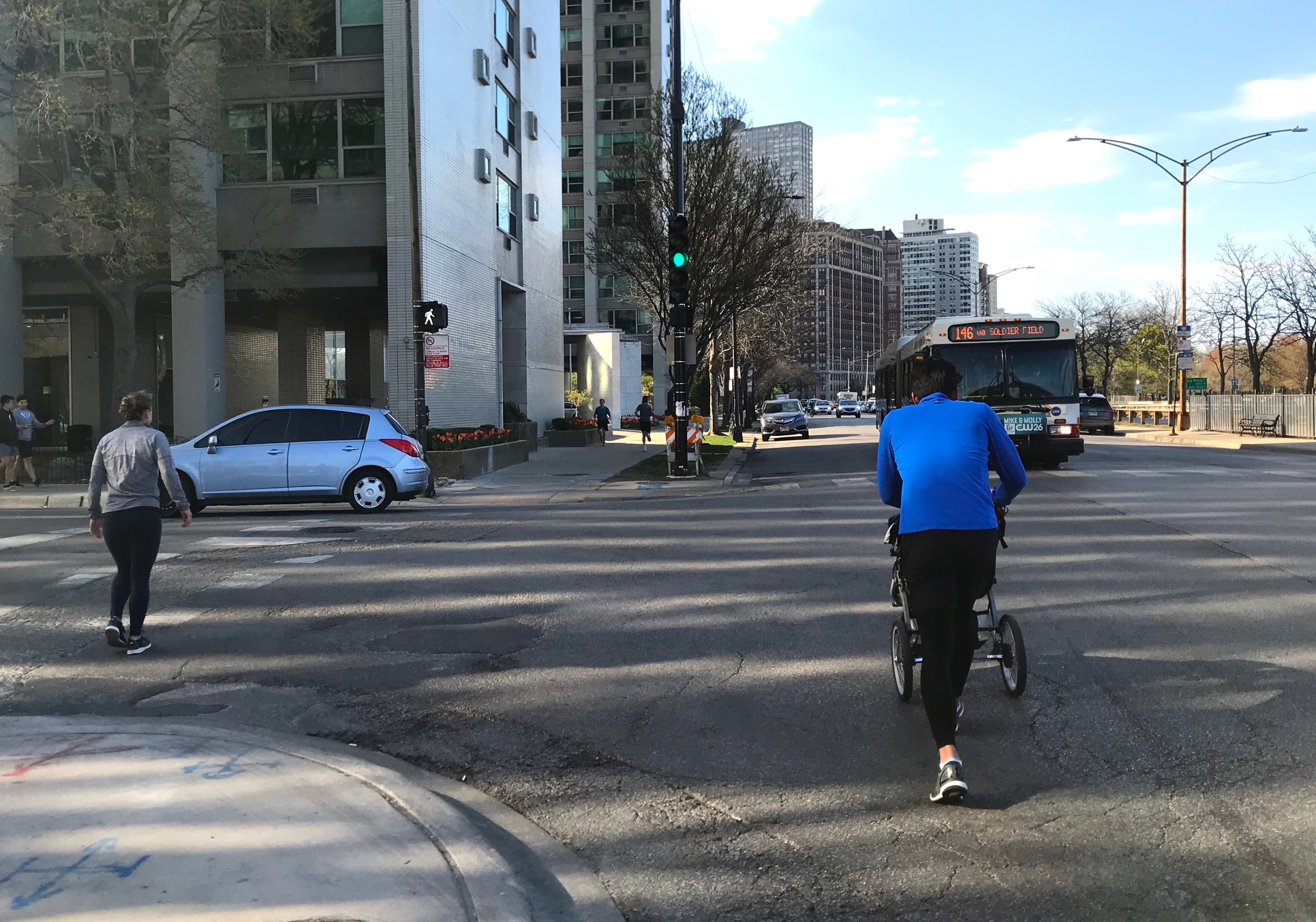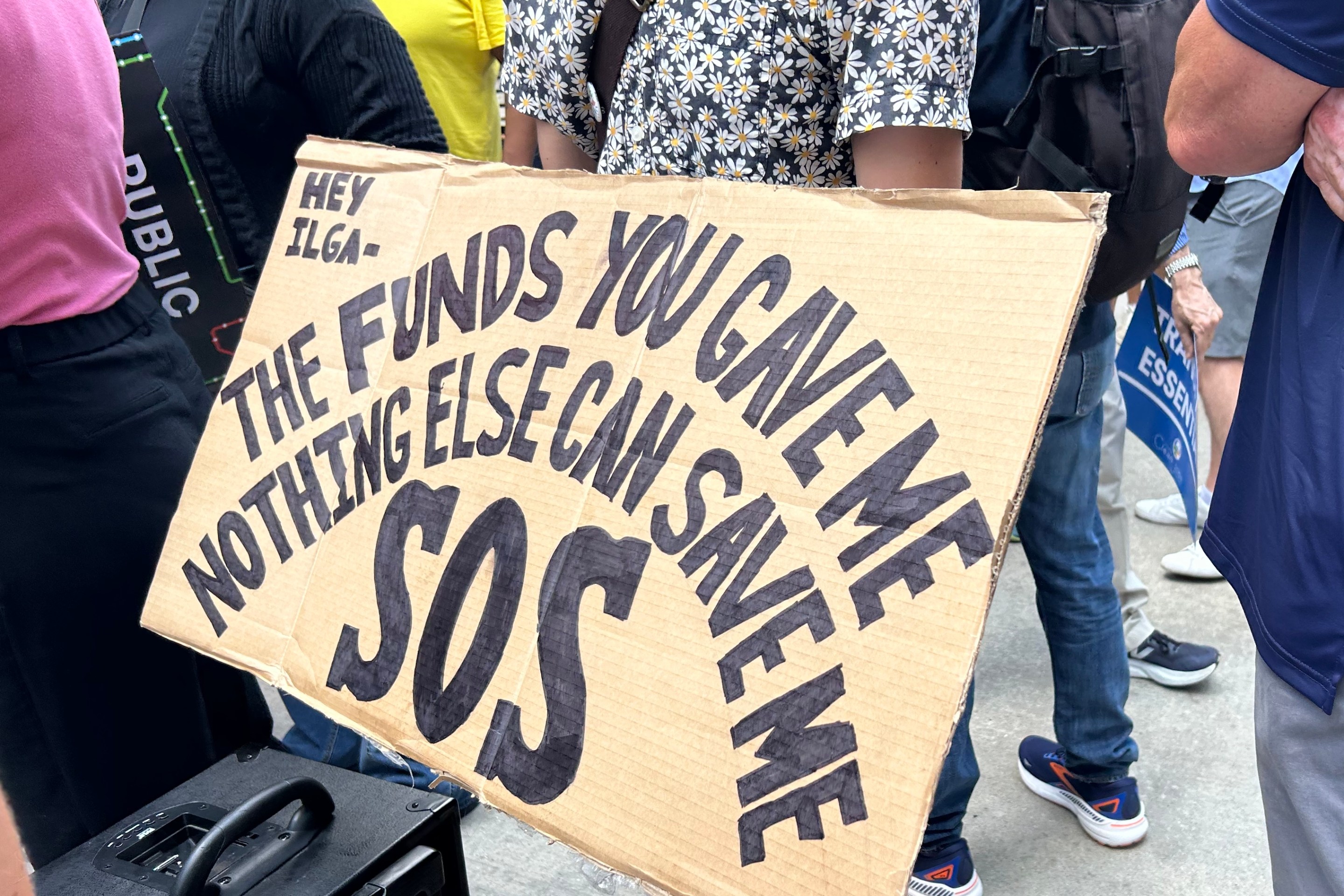Update 5/21/20 10:45 AM: CARA tweeted that their proposal has amassed about 2,000 supporters within 24 hours.
The Active Transportation Alliance has taken a rather passive approach to the total closure of Chicago's shoreline, including the Lakefront Trail, our city's most important car-free commuting corridor. In the past they've simply stated that "we want to defer to public health experts" on whether the reopening the path is safe, rather than publicly suggesting park safety best practices from other cities for Chicago officials to consider.
So it's good to see the Chicago Area Runners Association step forward to fill the leadership void on this issue with a concrete proposal to open the LFT, and possibly other closed paths like The 606. The group delivered the plan to Mayor Lori Lightfoot on May 11, and presented it to aldermen of trail-adjacent wards on the 14th.
In a WGN Radio interview today, CARA executive director Greg Hipp said that the goal of the proposal is facilitate people "getting out there and doing something that supports their physical and mental wellbeing," since running, along with walking and biking, is one of the few options for healthy recreation at a time when gym use and team sports are prohibited. He noted that, with fewer Chicago trails available and many sidewalks too narrow for social distancing, many residents have resorted to jogging in the street or in bike lanes, "which is certainly not a good alternative." He added that suburban CARA members report that the closures seem to be contributing to crowding in forest preserves.
CARA's trail proposal would initially limiting lakefront use to through traffic, such as walking, running, and cycling, similar to Seattle's successful "Keep Moving" rule in parks. The plan also calls for gathering size limitations that align with Illinois phased reopening plan. For starters, the trail would only be open from 5 a.m. to 10 a.m. (While the lakefront parks don't actually open until 6 a.m., non-stop motion is allowed on the trail at all hours.)
To sign on as a supporter of CARA's plan, runners have to pledge to follow safety guidelines, including avoiding unnecessary stops, maintaining six-foot social distance, using a mask or phase cover anytime they can't maintain that spacing, and detouring from the path if it gets too crowded. They're also asked if they'd be willing to volunteer as "social distance monitors," similar to Seattle's Social Distancing Ambassadors. Hipp told WGN that today over 350 people said they're be willing to help out. That's encouraging, although hiring paid ambassadors would be a good job-creation strategy during a time of heavy unemployment.
The obvious fly in the ointment with CARA's plan is that it wouldn't allow people to bike (or jog) home from work on the LFT in the evening. Hipp said CARA's thinking is that having morning hours only would help deter unsafe congregation and team sports on the shoreline. On the other hand, that strategy could backfire, if squeezing all trail activity on the lakefront into a mere five hours actually makes things more congested.
Notably, a proposal by Kyle Lucas, an essential worker with HIV who can't ride CTA during the pandemic, took a very different tack, calling for reopening the trail to bikes only to accommodate all work commutes. Lucas' petition currently has more than 1,500 supporters.
But CARA's morning-only policy wouldn't necessarily be a deal-breaker -- after all, as the saying goes, half a loaf is better than none at all. If necessary, essential workers could ride the Lakefront Trail for their morning commutes and then use on-street itineraries, such as Streetsblog's Low-Streets Lakefront Pandemic Cycling Route, for the return trip. However, if a compromise could be worked out to accommodate PM rush bike commuters, CARA's strong plan would become even stronger.





